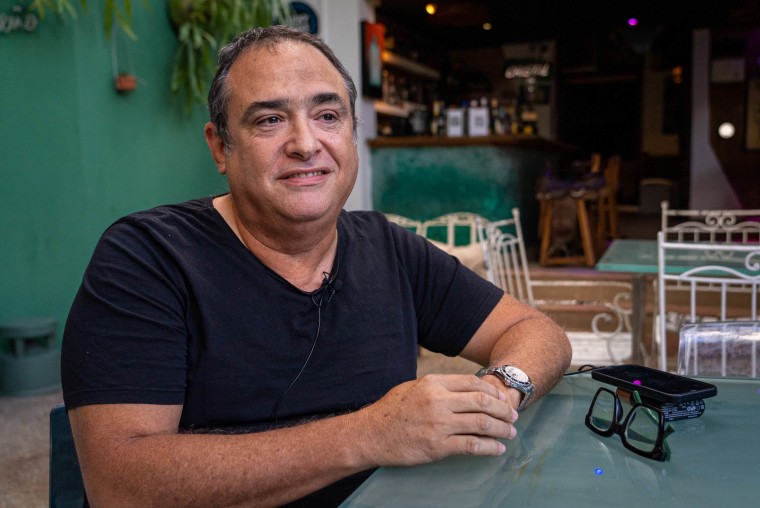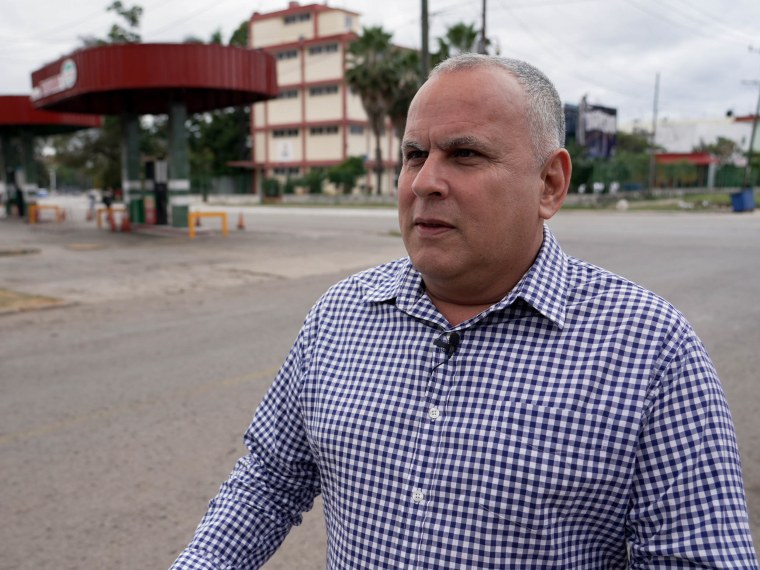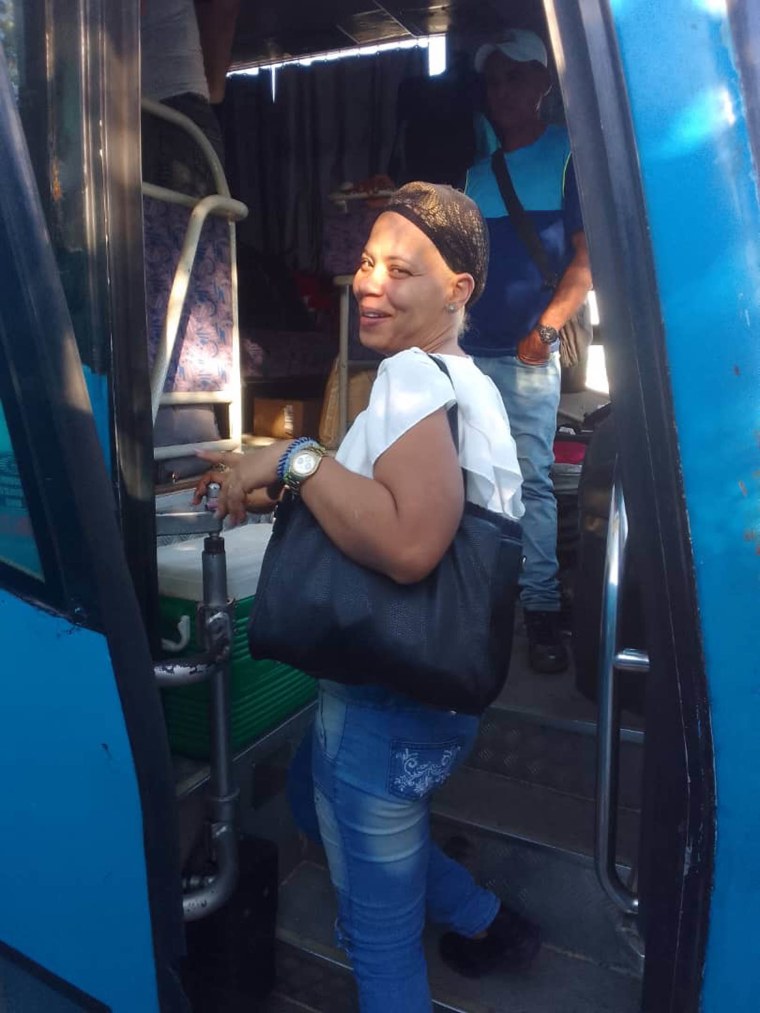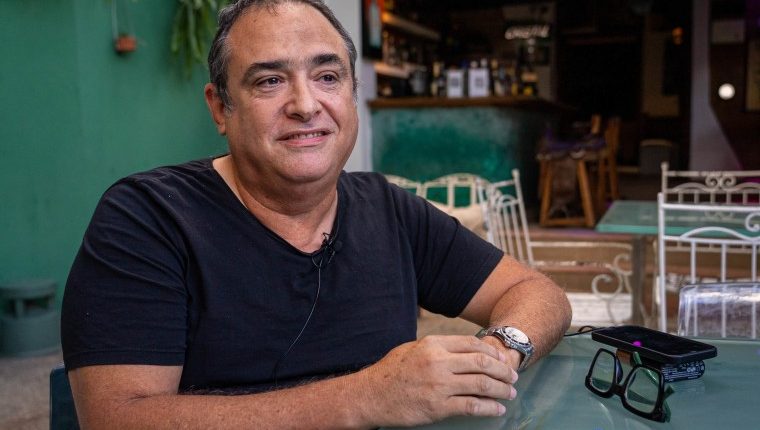HAVANA — At a gas station here in Cuba’s capital, taxi driver Rafael Guiardinú waited patiently in line for hours to fill his tank, worried about a rise in gas prices.
“How much am I supposed to charge a client if they want to go to the airport when the prices are so high?” Guiardinú asked.
“Prices will go up for everything,” he said. “At what price are they going to sell a pound of boniato (sweet potato) if it’s already expensive?”
After weeks of anxiety over a hike in gas prices of as much as 500% that was supposed to take effect Thursday, Cuba’s vice minister of economy announced Wednesday that the new measure would be delayed, citing a cybersecurity incident as the reason.
The expected hike in gas prices are part of an austerity plan announced in late December that caused alarm and drew widespread attention, since it included raising prices on basic services and staples, cutting subsidies and raising taxes on the emerging private sector.
There has been speculation that an increase could also affect other aspects of life on the island, including food prices, that are already costly due to inflation.
Mildred Granadillo de la Torre, vice minister of economy and planning, said Wednesday that an adjustment in fuel prices would incentivize savings and reduce demand, citing the high prices for fuel in the international market. Fuel in Cuba has been subsidized by the government for decades.

In Havana on Thursday morning, the main topic of conversation was the pause in the rise of gas prices and how it would give people a breather, even for a limited amount of time. Usually the main topic among family and friends is how expensive everything has become.
The measures are an attempt to curb the country’s ballooning deficit and lower inflation, which currently hovers around 30%, according to the government. Economists say the figure is higher when one takes into account the informal, or black market, which is widely used to exchange money and buy goods, and where the exchange rate is steeper.
As part of the measures, the government eliminated a one-year tax exemption for new private businesses in January. Now all companies must pay a series of taxes from their inception, including a 10% sales tax, a 35% tax on a company’s profits, and a 14% tax for social security. The private sector has had a significant role in the Cuban economy since the government lifted a ban on small- and medium-sized enterprises (called mipymes in Spanish) in 2021. Over 10,200 mipymes have been approved and registered, according to the latest government numbers. The vast majority (9,958) are privately owned.
Raúl Silva, 52, has owned a restaurant, Espacios (Spaces in English), in the Miramar neighborhood since 2012. He said many of the measures will “be reflected in the prices of products that business owners sell.”
“The new measures are not going to be effective in boosting economic development,” said Silva, who has a degree in macroeconomics. “I don’t know why they take measures that you know from the start are going to decrease growth in the country’s economy.”
The government has said some changes will come in March and include hikes in the price of electricity, public transportation and liquid gas.

In an attempt to prepare for what’s coming and to ease an anxious population, the government increased salaries for those who work in the health and education sectors. Cuban President Miguel Díaz-Canel has crisscrossed different provinces trying to assuage residents’ fears.
Díaz Canel said at a recent meeting of the council of states broadcast on state-run television that no one will be “desamparado,” or abandoned.
In the municipality of Arroyo on Wednesday, Díaz-Canel told residents that while “things are tough, we’re going to get ahead, working it out ourselves and with Cubans’ creativity and talent.”
‘A complicated scenario’
Havana-based economist Omar Everleny said the new measures will have an impact on purchasing power, adding he expects there will be even higher inflation in the next few months.
“I see a complicated scenario in the near future because there is a lot of emphasis by the government on the political aspect, giving speeches for people to understand the sacrifice that has to be made,” said Everleny. “But people have been going through this for years, and it’s not easy to understand when you can’t put food on the table.”
On Sunday in El Cerro, a municipality in Havana, Lisset Vélez, 40, boarded a private bus headed east to Manzanillo for a family emergency. The approximately 400-mile trip cost about $29, close to the average monthly salary.
“Of course it’s very expensive,” she said. “But it’s the only way to get there quickly.”

The government said the price of public transportation within cities will remain the same, but for those going from one province to another, the fares will go up by 180%, while train fares will go up by over 600%.
Cuba’s fragile economy took two big hits in recent years. First. then-President Donald Trump tightened the screws on the decades-old U.S. economic embargo during his tenure. Then tourism, the island’s main source of revenue, came to a halt during the pandemic lockdown and still hasn’t recovered to previous levels.
The cash-strapped country imports a majority of its products, and everything from fuel, power, food and medicine is in short supply.
The economic situation has affected migration; close to half a million Cubans have come to the U.S. since October 2021. Most are working age and leave behind an aging demographic.
Economist Pavel Vidal, a former Cuban central bank economist who teaches at Javeriana University in Colombia, said he’s one of the few economists who believes the austerity measures are necessary.
“If these measures have the results they are expected to, then they will help reduce subsidies and the fiscal deficit,” said Vidal, adding these are universal measures taken in countries with similar economic crises.
“At the same time, the government should take steps to incentivize growth in the economy,” said Vidal. “But it’s the same problem as always: The government does not want to open the economy and diversify it, which is what’s needed.”
Yuriel Milanés, who works at a state-owned produce market in Havana, said, “Vegetable prices will go up because of the gasoline, and it will affect people.”
Milanés takes public transportation to get to work and worries about what will happen when gas prices go up.
“I have to stand for four hours to wait for the bus, and by the time I get here I’m exhausted,” he said. “And sometimes I end up having to take a taxi, and it’s very expensive to get here.”
Outside a gas station, a Havana resident who declined to give his name said that “the salary we make does not match the hike in gas prices and other products.”
“The hike in gas prices makes sense, but what we need is an increase in salaries so we can pay for the gas,” he said.
Orlando Matos reported from Havana, and Carmen Sesín from Miami.
Source: | This article originally belongs to Nbcnews.com









